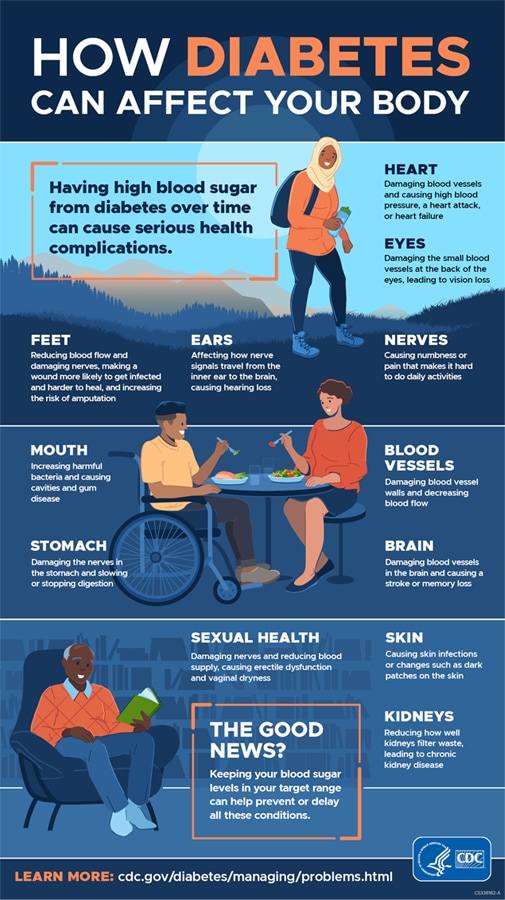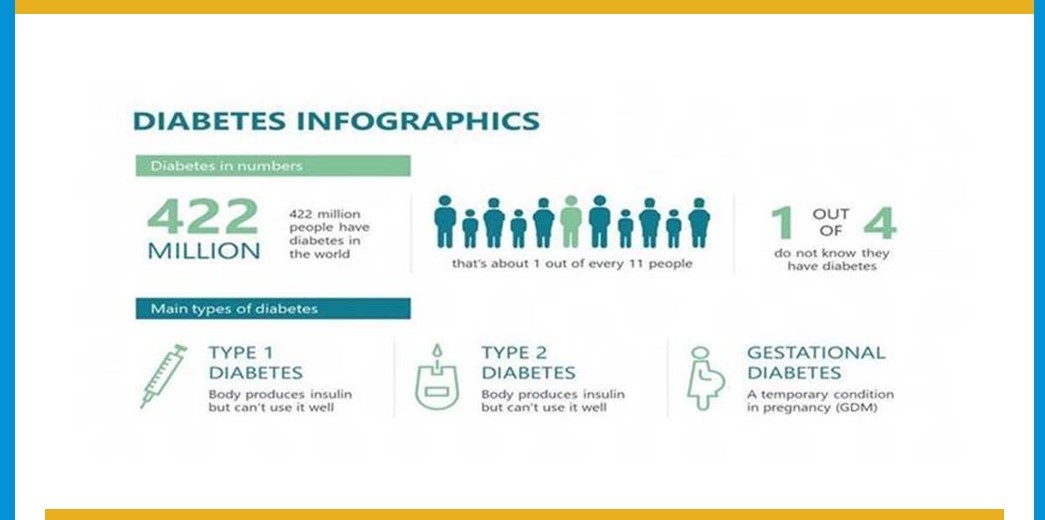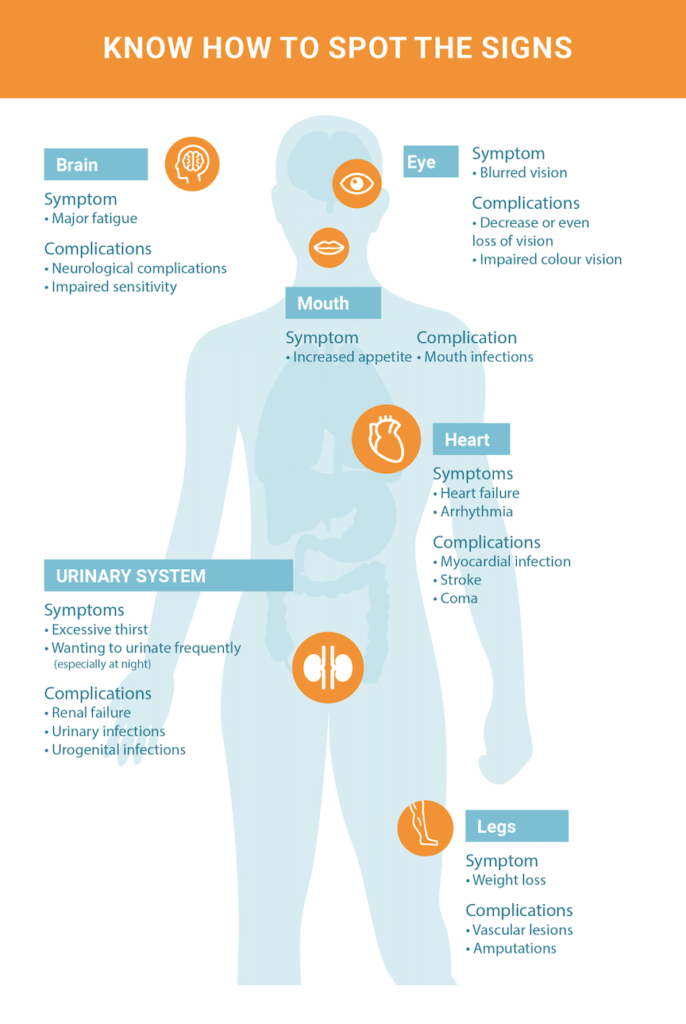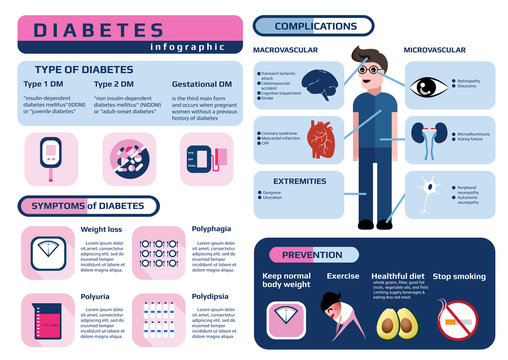Uncover the surprising triggers behind Type 2 Diabetes and take control of your health with these eye-opening insights.
Table of Contents
- Introduction to Type 2 Diabetes
- What Is Type 2 Diabetes?
- Common Triggers of Type 2 Diabetes
- The Role of Genetics
- High Blood Pressure and Diabetes
- Cholesterol and Type 2 Diabetes
- The Link Between Pregnancy and Diabetes
- Preventing Type 2 Diabetes
- How Doctors Check for Diabetes
- Living with Diabetes
- Summarizing Diabetes Triggers
- Frequently Asked Questions (FAQs)
Introduction to Type 2 Diabetes
Type 2 diabetes is a condition that affects how your body uses sugar for energy. When you have type 2 diabetes, your body either resists the effects of insulin, a hormone that regulates the movement of sugar into your cells, or doesn’t produce enough insulin to maintain normal glucose levels. This leads to high blood sugar levels, which can cause various health problems. Understanding what triggers type 2 diabetes is crucial for preventing and managing this condition.
So how does type 2 diabetes start? Let’s break it down in simple terms to help you grasp what’s going on in your body when dealing with this condition.
What Is Type 2 Diabetes?
Type 2 diabetes is a condition that affects the way our bodies use sugar, also known as glucose. When we eat food, our body breaks down the carbohydrates into sugar, which then travels through the blood to give us energy. However, in type 2 diabetes, our bodies can’t use this sugar properly, leading to high levels of sugar in the blood.
Understanding Blood Sugar
Blood sugar is like fuel for our bodies. It gives us the energy we need to play, run, and do all the fun things we love. But too much sugar in our blood can cause problems, like feeling tired all the time or getting sick more easily. That’s why it’s important to keep our blood sugar levels in check.
Insulin’s Role in Our Body
Insulin is like a key that helps sugar from our blood get into our cells to give them the energy they need. When someone has type 2 diabetes, their body doesn’t make enough insulin or can’t use the insulin it makes very well. This causes the sugar to build up in the blood instead of going into the cells, which can lead to health issues.
Common Triggers of Type 2 Diabetes
When it comes to type 2 diabetes, there are certain factors that can increase a person’s risk of developing this condition. Let’s take a closer look at some of the common triggers of type 2 diabetes in a simple and easy-to-understand way.

Image courtesy of www.cdc.gov via Google Images
Food and Diet
One of the key triggers of type 2 diabetes is the food we eat. Consuming a lot of sugary and high-fat foods can have a negative impact on our body’s blood sugar levels. When we eat too many unhealthy foods, it can lead to weight gain and insulin resistance, which are both linked to the development of type 2 diabetes.
Physical Activity
Another important trigger of type 2 diabetes is a lack of physical activity. When we don’t move our bodies enough, it can contribute to weight gain and make it harder for our cells to respond to insulin properly. This can increase the risk of developing type 2 diabetes over time. That’s why staying active and getting regular exercise is so important for our overall health.
The Role of Genetics
Genetics, which means the traits we inherit from our parents, play a big role in whether someone might develop type 2 diabetes. This doesn’t mean that if your mom or dad has diabetes, you will definitely get it too. But it does mean that having a family history of diabetes can make some people more likely to develop the condition.
Just like how you might inherit your mom’s green eyes or your dad’s curly hair, you could also inherit a tendency to have trouble with your blood sugar levels. This is because some people’s bodies may struggle to produce enough insulin, the hormone that helps regulate blood sugar levels, due to their genetic makeup.
High Blood Pressure and Diabetes
Having high blood pressure can put you at a greater risk of developing type 2 diabetes. Let’s find out how these two things are connected.

Image courtesy of www.shutterstock.com via Google Images
Why Does High Blood Pressure Matter?
First off, what exactly is high blood pressure? Blood pressure is the force pushing against the walls of your blood vessels as blood flows through them. When this force is higher than it should be, you have high blood pressure. Just like diabetes, high blood pressure can quietly damage your body without you even knowing it.
Connection to Type 2 Diabetes
So, how does high blood pressure link to type 2 diabetes? Well, studies have shown that having high blood pressure can make your body less sensitive to insulin. Remember, in type 2 diabetes, your body either doesn’t produce enough insulin or resists its effects, causing blood sugar levels to rise. But with the added factor of high blood pressure, it becomes even harder for your body to regulate blood sugar effectively.
As high blood pressure continues to strain your heart and blood vessels, it can lead to serious complications like heart disease, stroke, and yes, even type 2 diabetes. That’s why it’s crucial to keep an eye on your blood pressure levels and work to manage them to lower your risk of developing diabetes.
Cholesterol and Type 2 Diabetes
When we talk about cholesterol, we’re referring to a fatty substance found in our blood. Cholesterol plays an essential role in building cells and making hormones, but too much of the wrong kind can cause problems. One type of cholesterol that can be harmful is called LDL cholesterol, often referred to as “bad” cholesterol.
What’s the Link to Type 2 Diabetes?
Having high levels of LDL cholesterol in your blood can put you at risk for developing type 2 diabetes. Studies have shown that high cholesterol levels may lead to insulin resistance, a key factor in the development of diabetes. Insulin, as you might remember, is a hormone that helps regulate blood sugar levels, with resistance making it harder for your body to use insulin effectively.
Imagine insulin as a key trying to unlock your cells’ doors to let sugar in for energy. When someone has insulin resistance, these keys aren’t working as well, leading to sugar staying trapped outside the cells, causing blood sugar levels to rise, eventually leading to diabetes.
This means that keeping a check on your cholesterol levels is vital for your overall health, especially if you want to lower your risk of developing type 2 diabetes. Eating a healthy diet, staying active, and talking to your doctor about your cholesterol is all part of maintaining a balanced and healthy lifestyle.
The Link Between Pregnancy and Diabetes
During pregnancy, some women may develop a specific type of diabetes called gestational diabetes. This condition occurs when the body cannot produce enough insulin to keep up with the increased demand during pregnancy. While gestational diabetes typically goes away after giving birth, it can have lasting effects on both the mother and the baby.
What Is Gestational Diabetes?
Gestational diabetes is a form of diabetes that develops during pregnancy and affects how your body uses sugar (glucose). This condition can lead to high blood sugar levels, which can be harmful if not managed properly. It’s essential for pregnant women to work closely with their healthcare team to control gestational diabetes and ensure a healthy pregnancy.
The Connection to Type 2 Diabetes
Women who have had gestational diabetes are at an increased risk of developing type 2 diabetes later in life. Research shows that the changes in hormone levels and weight gain during pregnancy can impact the body’s ability to use insulin effectively, leading to long-term consequences. By maintaining a healthy lifestyle and monitoring blood sugar levels, women can reduce their risk of developing type 2 diabetes in the future.
Preventing Type 2 Diabetes
Now that we know a bit more about what type 2 diabetes is and what can trigger it, let’s talk about how we can help prevent it. There are simple steps we can take to reduce our risk of developing type 2 diabetes.
Healthy Eating
One of the important ways to help prevent type 2 diabetes is by making healthy food choices. Eating lots of sugary and high-fat foods can make it harder for our bodies to control blood sugar levels. Instead, try to include more fruits, vegetables, whole grains, and lean proteins in your diet. These foods can help keep your blood sugar in check and reduce your risk of developing type 2 diabetes.
| Factor | Description |
|---|---|
| Genetics | Family history of Type 2 diabetes increases the risk. |
| Obesity | Being overweight or obese can lead to insulin resistance. |
| Physical Inactivity | Lack of exercise can contribute to weight gain and insulin resistance. |
| Poor Diet | Consuming high amounts of processed foods, sugary beverages, and unhealthy fats can increase the risk. |
| Age | Risk increases with age, especially after 45 years old. |
Staying Active
Another key way to prevent type 2 diabetes is by staying active. Regular physical activity can help our bodies use insulin more efficiently and keep our blood sugar levels stable. Try to find fun ways to include more movement in your daily life – go for a bike ride, play sports with friends, or even dance around the house. Any activity that gets your body moving is great for reducing your risk of type 2 diabetes.
How Doctors Check for Diabetes
When doctors suspect someone may have diabetes, they use specific tests to confirm it. These tests help doctors understand how the body processes sugar and if there are any signs of diabetes.

Image courtesy of www.montgomerycountymd.gov via Google Images
Testing Blood Sugar Levels
One of the main ways doctors check for diabetes is by measuring blood sugar levels. This can be done by a simple blood test where a small sample of blood is taken to analyze the sugar content. High blood sugar levels may indicate diabetes.
Oral Glucose Tolerance Test
For more detailed information, doctors might perform an oral glucose tolerance test. In this test, the person being tested drinks a sugary solution, and then blood sugar levels are checked before and after to see how well the body processes sugar.
A1C Test
The A1C test is another important tool in diagnosing diabetes. This test measures the average blood sugar levels over the past two to three months. It gives a broader picture of how blood sugar levels have been managed over time.
These tests give doctors essential information to diagnose diabetes accurately. By understanding these tests, doctors can provide the best treatment plan for managing diabetes effectively.
Living with Diabetes
Living with type 2 diabetes doesn’t have to be scary. With the right knowledge and support, you can manage your condition and still live a happy, healthy life.
Monitoring Blood Sugar
One of the most important things to do when you have diabetes is to monitor your blood sugar levels regularly. This helps you know if your levels are too high or too low so that you can take action to keep them in check.
Eating Healthy
Choosing healthy foods is key to managing diabetes. Foods that are high in sugar or unhealthy fats can cause spikes in your blood sugar levels. Instead, focus on eating plenty of fruits, vegetables, whole grains, and lean proteins.
Staying Active
Regular physical activity is also crucial for managing diabetes. Exercise helps your body use insulin more effectively, which can lower your blood sugar levels. Aim for at least 60 minutes of activity each day, whether it’s playing sports, riding your bike, or simply going for a walk.
Regular Check-ups
It’s important to see your doctor regularly to ensure your diabetes is well managed. They may check your blood sugar levels, blood pressure, and cholesterol to make sure everything is under control. They can also help adjust your treatment plan if needed.
Remember, you’re not alone in this journey. Your family, friends, and healthcare team are there to support you every step of the way. With the right tools and resources, you can successfully manage your diabetes and lead a fulfilling life.
Summarizing Diabetes Triggers
In understanding what triggers type 2 diabetes, it’s essential to recognize the key factors that can contribute to the development of this condition. We have explored how various aspects of our lifestyle and genetics play a role in increasing the risk of type 2 diabetes. Let’s recap some of the critical triggers we have discussed.

Image courtesy of servier.com via Google Images
Food and Diet
One major trigger of type 2 diabetes is our food choices. Eating a lot of sugary and high-fat foods can impact our blood sugar levels, leading to insulin resistance and the development of diabetes. By making healthier food choices and eating balanced meals, we can help prevent the onset of type 2 diabetes.
Physical Activity
Another important trigger is the lack of physical activity. Engaging in regular exercise helps our bodies use insulin more effectively, keeping our blood sugar levels in check. By staying active and incorporating fun activities into our daily routine, we can lower our risk of developing type 2 diabetes.
By understanding and addressing these triggers, we can take proactive steps to promote better health and reduce the chances of developing type 2 diabetes. Remember, making small lifestyle changes now can have a big impact on our future well-being!
Frequently Asked Questions (FAQs)
Can eating too much sugar cause diabetes?
While eating too much sugar is not the sole cause of diabetes, it can contribute to the development of type 2 diabetes. Consuming sugary and high-fat foods can lead to weight gain and affect blood sugar levels over time. It’s essential to maintain a balanced diet with plenty of fruits, vegetables, whole grains, and lean protein to keep your body healthy.
Can kids get type 2 diabetes?
Although it is less common for kids to develop type 2 diabetes, it is still possible. It is essential for kids to stay active, eat a healthy diet, and maintain a healthy weight to reduce the risk of developing diabetes. By making smart lifestyle choices, kids can help lower their chances of developing type 2 diabetes and enjoy a healthier life.






